Legislation Filed for 2024 Session of Oklahoma Legislature
Speaker McCall Files Tax Cut Legislation
Oklahoma House Speaker Charles McCall (R-Atoka) filed multiple pieces of legislation regarding personal income tax cuts. The bills are the latest in a series of tax cut plans that the House has filed and passed throughout the last three years. “Everyday Oklahomans continue to feel the effects of destructive federal economic policies on their wallet, and they desperately need relief,” McCall said. “The House has passed numerous tax cut bills to the Senate during multiple regular and special sessions throughout the last three years, and these new bills represent our latest attempt to get meaningful tax cuts passed and to the governor’s desk. Our state is in a strong position both economically and in regards to savings, so now is the perfect time to pass tax cuts and let the citizens of Oklahoma keep more of their hard-earned money.”
The bills filed by McCall are:
HB 2948 – Corporate income tax phase out over five years.
HB 2949 – Flat rate 4.25% personal income tax effective Jan. 1, 2024; rate imposed on taxable income amounts above specific figures based on filing status.
HB 2950 – .25% personal income tax decrease effective Jan. 1, 2024, and following tax years.
HB 2951 – .25% personal income tax decrease for 2024 and 2025, with rates to restore to current level (current rates and brackets) for 2026, and following tax years.
HB 2952 – .50% personal income tax decrease for 2024 and 2025, with rates to restore to current level (current rates and brackets) for 2026, and following tax years.
Previous tax cut legislation that has been passed by the House and is currently awaiting action in the Senate is:
HB 1953 – As amended - eliminates the current standard deductions and changes the personal income taxing framework from a bracket based system to a flat rate system. For tax year 2024 and 2025, sets the flat rate at 4.25%, with the rate imposed on taxable income amounts above specific figures based on filing status.
HB 1954 – .50% personal income tax decrease effective Jan. 1, 2024, and following tax years.
Zero State Income Tax
Sen. Micheal Bergstrom (R-Adair) filed Senate Bill 1228, a measure that would outline a pathway to eliminate the Oklahoma state income tax. This significant proposal aims to alleviate the burden on hardworking Oklahomans and spur economic growth by fostering job creation within small businesses. “Personal income tax punishes work, hindering both individuals and businesses from reaching their full potential.” Bergstrom said. “Senate Bill 1228 charts a course toward the gradual elimination of the state income tax, all while implementing safeguards to ensure that essential revenue for public services remains intact.”
The proposed legislation recognizes the critical role small businesses play in job creation and economic development. As most small business profits are taxed as personal income, reducing the state income tax is expected to empower these businesses to expand and generate more employment opportunities. The proposed pathway to eliminate the state income tax is designed to be methodical and cautious, safeguarding against unintended consequences while aiming for a more business-friendly environment.
Block “Road User Charge” Plan
Rep. Tom Gann (R-Inola) filed what he called “a pivotal bill aimed at safeguarding Oklahomans’ freedom and privacy.” House Bill 2970 comes in response to what Gann termed are growing concerns over the Oklahoma Road User Charge (RUC) Task Force’s controversial “Road User Charge” proposal. “Under their Orwellian proposed plan, Oklahomans would be monitored on every mile they drive, and pay a tax for each of these miles,” Gann said. He sees the proposal as unfairly penalizing motorists, especially those in rural areas of the state who do not have alternative options for commuting.
“It’s quite inconceivable to me that in the near future, motorists might face variable-rate, per-mile fees for driving beyond a government-approved limit,” Gann said, highlighting his concerns about the recommendations’ potential to put government in charge of every motorist’s driven mile. Gann also raised alarm over the suggested requirement for surveillance infrastructure to track mileage. He said he fears this system could be exploited by state and federal authorities for various oppressive purposes, including targeting individuals with differing political views.
Gann’s bill seeks to repeal House Bill 1712, halting any future advancement of this initiative. Gann, who voted against House Bill 1712 in 2021, said he believes the bill’s implications were not fully understood. “House Bill 2970 is about reassuring Oklahomans that their Legislature won’t enforce a socialist, Orwellian green agenda and a surveillance state here,” Gann said.
Prohibit Ranked-Choice Voting
Rep. Eric Roberts (R-Oklahoma City) filed legislation to prohibit the use of ranked-choice voting in all Oklahoma elections, emphasizing the importance of safeguarding the state’s electoral processes. House Bill 3156 would ban ranked-choice voting within the state. House Joint Resolution 1048 would introduce a legislative referendum allowing voters to decide whether to add stipulations about how elections are conducted into the Oklahoma Constitution and ensure voters can select only one candidate for the same office. “Ranked-choice voting makes voting more confusing and has delayed election results everywhere it has been tried,” Roberts said. “We need to preserve the simplicity and timeliness of our current elections, along with our current ease in doing hand recounts when needed.” Ranked-choice voting has already been banned in Florida, Tennessee, Idaho, Montana and South Dakota.
Ranked-choice voting requires voters to designate their top choice in a race, their second choice, and so on down the ballot. If no candidate receives a majority, the least popular candidate is then eliminated and their voters would have their votes reallocated to their second-choice candidate, with the process repeating until one candidate is calculated to have a majority. The process requires specialized computer software to handle the reallocation of votes from one candidate to another. In an interim study last year, Oklahoma State Election Board Secretary Paul Ziriax said the adoption of ranked-choice voting would necessitate the replacement of all state election machines, including new computer software, with an estimated cost of “tens of millions of dollars.” Ziriax also told committee members that “the days of knowing the election results on election night would be long gone.”
Drivers Licenses for Illegals
Sen. Michael Brooks (D-Oklahoma City) has again introduced legislation to allow illegal aliens to obtain an Oklahoma Drivers License. Oklahoma law says Drivers Licenses “shall be issued only to United States citizens, nationals and legal permanent resident aliens.” Currently, Oklahomans cannot get a driver’s license without a social security number, but Senate Bill 1409 would allow them to get a license with a Tax ID number. However, the bill says such individuals shall not be provided voter registration services nor shall they be eligible to receive a commercial driver license. A license granted to such an individual shall be issued for a period not to exceed 2 years. Sen. Brooks claims it would cut down on uninsured drivers as well as hit and run accidents. Sen. Brooks is an attorney who specializes in immigration law.
Prohibit Foreign-Made Drones
Rep. Chris Banning (R-Bixby) filed legislation prohibiting the state of Oklahoma from purchasing drones from covered foreign entities. House Bill 3068 would restrict the state from purchasing or operating small unmanned aircraft systems, known as drones, that are built or assembled by covered foreign entities without specific waivers. “This bill marks a step in safeguarding Oklahoma’s interests,” Banning said.
HB3068 categorizes covered foreign entities as those whose names appear on the Consolidated Screening List or Entity List, as designated by the United States Secretary of Commerce, or domicile in the People’s Republic of China or the Russian Federation.
The Office of Management and Enterprise Services (OMES) could waive the restrictions after reviewing the necessity to purchase a covered foreign entity-manufactured system due to difficult circumstances, Counter-Unmanned Aircraft Systems, or criminal investigative purposes. Under HB3068, public entities could not operate small unmanned aircraft systems from covered foreign entities after May 1, 2027.
Protect Students from Foreign Influence
Rep. Tom Gann (R-Inola) said he is taking a proactive step toward safeguarding Oklahoma’s public school students with House Bill 3112. Beginning in the 2024-25 school year, the bill would prohibit schools and school districts from accepting financial donations or gifts from countries designated as “hostile” or “Countries of Particular Concern (CPC)” by the United States Secretary of State.
On Sept. 21, 2023, Superintendent for Public Instruction Ryan Walters issued a report to the Legislature from his testimony to the U.S. House Subcommittee on Early Childhood, Elementary and Secondary Education. He described the involvement of the Chinese Communist Party in Oklahoma public education. Gann said the hearing uncovered the covert efforts by the Chinese Communist Party to influence young people in the United States through the nation’s universities and K-12 systems of public education. “One of the most disturbing statements in the report was, ‘The Chinese International Education Foundation (CIEF), a Chinese-based organization sponsored by the CCP, is directly mentioned ten times in a contract that Tulsa Public Schools signed with the Confucius Classroom Coordination Office (CCCO) within the nonprofit IL Texas Global,” Gann said.
Limit Student Phone Usage in Schools
Sen. Ally Seifried (R-Claremore) filed legislation creating a pilot program to allow Oklahoma public schools to create phone-free school sites. Senate Bill 1321 would provide grant-style funding for up to nine middle or high schools to cover the costs associated for sites going cellphone free for the duration of the school day. Seifried said the goal of the program was to remove distractions for students in order to increase educational outcomes, in addition to, limiting the damaging effects of cellphone use on students’ mental health and wellbeing.
“This bill is the result of many conversations with teachers, administrators and parents, who want their kids and students to be more engaged in the classroom,” Seifried said. “By limiting the distraction of cellphones at school, it will allow students to truly focus on their learning. One Rutgers study, showed that removing cellphones from the classroom increased students’ test scores by almost 7% and doubled that rate for low-achieving students.”
Seifried said the benefit of this pilot will be to demonstrate how outcomes can change when students aren’t thinking about who is messaging them, liking their social media posts or any other related distraction. “Schools who have implemented these policies have seen discipline instances reduced, with bullying and anxiety decreased as well,” she added. “We all inherently know that cell phones affect students’ achievement, learning, retention, and their mental health. I’m confident that, if this bill passes, at the conclusion of the three-year program period, the data will be overwhelmingly positive for the Oklahoma students who participated.”
Require OSSAA to Accept Cash at Games
Rep. Rick West (R-Heavener) filed legislation that would require an organization such as the Oklahoma Secondary School Activities Association (OSSAA) to accept cash for admittance to sporting events or any other activity where payment is required. House Bill 2972 would require any private organization or association which charges schools or school districts a membership fee, retains a portion of revenue generated by an interscholastic activity or contest of the member schools, and provides the coordination, supervision, and regulation of the interscholastic activity or contest shall accept cash as legal tender for admission to any activity or contest.
“We don’t live in a cashless society, and honestly it’s dangerous to try and go in that direction,” West said. “It’s also hard for people, like grandparents, who don’t have a credit card or a cash app on their phone, to enjoy these games. For some in rural areas, this is one of their only forms of entertainment. Going cashless disenfranchises many.” West said the request for the legislation came from constituents who said they faced being turned away from tournament games last year when their only method of payment was cash. HB 2972 also stipulates that an organization can’t charge any more for taking cash nor offer a discount for the use of another payment method.
Display Ten Commandments in Classrooms
Rep. Jim Olsen (R-Roland) filed legislation to require the Ten Commandments be displayed in all public school classrooms. House Bill 2962 would require each classroom to clearly display a poster or framed copy of the Ten Commandments, measuring at least 16 inches wide and 20 inches tall, beginning in the 2024-2025 school year. The bill also outlines the specific text to be used for the display. “The Ten Commandments is one of the foundations of our nation,” Olsen said. “Publicly and proudly displaying them in public school classrooms will serve as a reminder of the ethics of our state and country as students and teachers go about their day. It is my prayer that this display would inspire our young people during their formative years and encourage them to lead moral, principled lives.”
Olsen said the Ten Commandments was referenced by the Founding Fathers as a code of morality and was taught in public schools for hundreds of years. Early textbooks like the New England Primer, first published in 1687, and the McGuffey Readers, first published in 1836, were widely used and included teachings of the Ten Commandments.
Require Schools to List Library Materials
Sen. Warren Hamilton (R-McCurtain) filed legislation to ensure public and charter school libraries are free from inappropriate materials. Senate Bill 1208 would schools to submit an inventory of their library materials to the State Department of Education each year. “Children are too often exposed to material that is explicit and not age appropriate, and the last place that should be occurring is in our state’s schools,” Hamilton said. The bill would also require schools to have written policies for reviewing the educational suitability and age-appropriate nature of any material in a library, and for receiving and responding to complaints regarding books and materials in libraries.
Penalty for Guns in Schools
Sen. Jessica Garvin (R-Duncan) filed legislation to increase the state penalty for carrying an illegal firearm onto school property. Senate Bill 1254 would change the already illegal infraction from a misdemeanor to a felony offense, increases the fine to $2,500 and allows state prosecutors to seek up to a year in prison if the individual carrying the weapon is found guilty. “While it’s already illegal to carry a firearm on school grounds, we determined the current state punishment is nothing more than a slap on the wrist. Senate Bill 1254 will hopefully deter those who want to cause harm in our schools,” Garvin said.
Critics of the bill say some good people choose to ignore the gun ban on school grounds and be prepared to defend themselves and others on campus because under current law they risk only a misdemeanor. But they may choose to leave their arms at home if the penalty is ramped up to a felony. They say those intent on shooting people in schools will not be deterred by the higher prenalty.
Age Discrimination in Firearms Purchases
Sen. David Bullard (R-Durant) filed legislation to better protect the Second Amendment rights of Oklahomans when purchasing firearms. Senate Bill 1218 would prohibit licensed dealers from denying anyone over the age of 18 from purchasing a firearm based on his or her age unless the customer does not meet state law requirements. “I have reviewed the Second Amendment many times and you will be relieved to know that it does not have an expiration date, nor is there one on your right to purchase a firearm,” Bullard said. “Unfortunately, we have seen where there was an attempt to deny an Oklahoman the right to own a weapon because they were too old. This is age discrimination and unconstitutional to boot.” The measure would further require any licensed dealer who receives a denial on a background check conducted through the National Instant Criminal Background Check System based on age to document all evidence of such denial and submit the evidence to the Oklahoma State Bureau of Investigation (OSBI).
Incentives for Firearm Safety Devices
Sen. Jo Anna Dossett (D-Tulsa) filed legislation aimed at incentivizing the use of firearm safety devices. Senate Bill 1476 would provide a state sales tax exemption to encourage more Oklahomans to take advantage of such equipment. Dossett held an interim study on the topic last fall, with experts from the National Conference of State Legislatures (NCSL), the Oklahoma Rifle Association (ORA), and Everytown for Gun Safety presenting data and perspectives on the utilization of tax incentives to promote greater safety.
“I believe most Oklahomans are responsible gun owners, and many of our citizens already take advantage of firearm safety devices – the idea is to provide a financial incentive so that even more will do so,” Dossett said. “It’s something more than a dozen other states are already doing, and others are considering. It really is a commonsense bill that could help prevent injuries and deaths.” Under SB 1476, a state sales tax exemption could be used for the purchase of firearm safety devices, including gun safes, cases, lock boxes, and trigger locks.
Stop DEI in Oklahoma Colleges
In the wake of his Interim Study on October 18, looking at DEI practices in our universities and colleges, Sen. Rob Standridge (R-Norman) has filed four pieces of legislation to adopt laws that will stop this discriminatory process. Sen. Standridge says DEI should be called by its more appropriate name, Discriminate, Exclude and Indoctrinate. “Our universities and colleges will continue to devolve as we veer further away from merit-based accomplishments and continue to follow the leftist ideology of DEI to its ultimate negative end. In our colleges and universities, we should begin to follow the words of one of the greatest civil rights heroes in history, Martin Luther King, Jr., when he said ‘I have a dream.[people should not be judged] by the color of their skin but by the content of their character,’ and we can add gender, pronouns, and every other leftist idea of dividing our nation into classes, to this ideal,” Standridge said.
The four bills are aimed at eliminating DEI practices in Oklahoma higher education institutions are Senate Bills 1303, 1304, 1305, and 1306. These pieces of legislation prohibit the establishment of a DEI office or hiring or assigning of employees to carry out DEI practices, among other safeguards to ensure students and faculty are not exposed to such concepts. It also states that if the State Auditor and Inspector determines an institution has spent funds in violation of the legislation, it must cure the violation within 180 days, and if it does not, the institution will be ineligible to receive funding allocation increases from the State Regents for the next fiscal year.
Additionally, Standridge’s pieces of legislation would create the Oklahoma Workforce Education Revolving Fund for the Oklahoma Department of Commerce; direct each institution to establish curricula and designate courses in a manner that does not require or constrain students to enroll in a diversity, equity, inclusion, and critical race theory (DEI-CRT) related education, major, minor, or certificate requirements. Also, prohibits institutions within the Oklahoma State System of Higher Education beginning in the 2024-2025 academic year from requiring enrolled students to enroll in a course that is not a core requirement of their chosen curriculum, a course for which there is no tuition or fee charged comparable to similar courses, or a course that is not directly relevant to the degree being pursued and that the student or financially responsible person objects to on philosophical or religious reasons.
Funding for Civil Rights Trail
Sen. Kevin Matthews (D-Tulsa) filed legislation taking the next step in creating Oklahoma’s Civil Rights Trail. Last session, a measure authorizing the trail and the necessary revolving fund for grants related to its development received unanimous approval in the Legislature and was signed into law by the governor. Now, Matthews has filed Senate Bill 1356 providing $1.5 million for the revolving fund. Ultimately federal dollars as well as gifts and donations for development of the trail may be received as well. He said the project will preserve Oklahoma’s past, inspire future generations, and promote economic development throughout the state.
“The Civil Rights Trail will highlight our state’s Black towns, as well as Native American sites of historic significance,” Matthews said. “These locations are integral to Oklahoma’s identity and the role our citizens played in the U.S. Civil Rights movement. The Oklahoma Civil Rights Trail, as described in the 2023 legislation, will begin at Standing Bear Park, Museum and Education Center in Ponca City, then proceed to the site of the 1920s “Osage Reign of Terror,” in Fairfax. The trail will continue through the state’s all Black communities, including Boley; Brooksville; Clearview; Grayson; Langston; Lima; Red Bird; Rentiesville; Summit; Taft; Tatums; Tullahassee; and Vernon. The trail then moves to Greenwood Rising and the Pathway to Hope, in Tulsa, before ending at the Clara Luper Center, to be built in Oklahoma City.
Tax-Free Vehicle Title Transfers to Grandchildren
Rep. Rick West (R-Heavener) filed legislation that would extend tax-free vehicle title transfers from grandparents to their grandchildren. Currently an excise tax is levied upon the transfer of legal ownership of any vehicle registered in Oklahoma. Exceptions include people who possess an agricultural exemption, and for title transfers between husband and wife and parent and child. House Bill 2973 would extend the exemption to grandparents transferring a title to a grandchild, including through family trusts. “This was a constituent request that makes perfect sense,” West said. “Grandparents should be allowed to transfer the title to their vehicles to their grandchildren without the state taxing the transaction. We already do this for parents and children. It’s time to extend this to grandparents.”
Unpaid Turnpike Tolls Prevent Vehicle Registration
Under current law, if a person owes turnpike tolls, they are prohibited from renewing their vehicle registration until they pay their toll. But, Rep. Annie Menz (D-Norman) filed House Bill 2968 which would remove the ability of Service Oklahoma to deny renewal vehicle registration for unpaid tolls. Menz says her office has received feedback from constituents about this issue, and it is time to make this adjustment. “Imagine taking off work to stand in line at the tag agency to renew your vehicle registration, only to be told you can’t because you owe money to OTA for tolls. Many people don’t have to imagine that; they’ve experienced it,” stated Menz. The legislator says that if these kinds of roadblocks stand, it just incentivizes people to continue driving without their registration being up-to-date. “Lawful drivers mean safer roads, and getting to work safely means being able to pay bills. This legislation is a commonsense adjustment for working families.” said Menz.
Give Tenants More Time Before Evictions
Sen. Julia Kirt (D-Oklahoma City) filed legislation to give people more time to come up with rent money or find a new place to live. Senate Bill 1575 would extend the window for setting an eviction trial to 10 business days and extend the timeline for notice of a trial to a week. “Giving tenants a little more time to figure out their next step, whether it is coming up with their rent money or another place to live, can help reduce homelessness, and that’s better for families, taxpayers and our economy,” Kirt said.
Kirt said one of the root causes of homelessness is eviction, and Oklahoma City and Tulsa have some of the highest rates of eviction in the country, ranked 20th and 11th respectively. The resulting instability from homelessness can make it more difficult for adults to keep their jobs and can undermine their children’s ability to stay in and do well in school. Having been evicted can also present barriers to obtaining housing in the future, with studies showing a prior eviction is more concerning to landlords when screening a prospective tenant than job insecurity, criminal history or income.
Adding Paid Leave to Quality Jobs Criteria
Sen. Julia Kirt ( D-Oklahoma City) filed legislation that would add paid leave to the qualifications for Oklahoma’s Quality Jobs Program. The program offers qualifying companies quarterly cash rebates equal to up to five percent of newly created taxable payroll for up to 10 years. Senate Bill 1267 would require a company to provide at least 12 weeks paid family leave and at least two weeks of additional paid leave, such as sick leave, to qualify for those incentives. “The majority of Oklahoma workers do not have paid leave and can’t even afford to take unpaid leave when they or family members are ill. Quality Jobs is the benchmark we use for many of our economic development programs, so we need to make sure it’s the gold standard,” said Kirt.
New Economic Development Agency
Sen. Kristen Thompson (R-Edmond) filed legislation to create the Oklahoma Office of Economic Development, Growth and Expansion (OkEDGE) that aims to transform economic development and business retention in Oklahoma. OkEDGE would function and exist as a new state agency. The new agency will absorb current employees from the Oklahoma Department of Commerce, while installing a new leadership model. Thompson’s bill proposes a one-time investment of $698 million. Projections indicate an 8% return on investment, translating to an annual allocation of $55.84 million specifically designated for economic development, business retention and expansion efforts in Oklahoma.
“Recently, we have lost out on several large projects, and have seen major employers leaving the state. Other states are beating us, and it’s hurting Oklahoma communities both large and small,” says Thompson. OkEDGE would serve as the lead negotiation arm for Oklahoma, actively seeking to attract new businesses while ensuring the satisfaction and retention of current employers. Sen. Thompson envisions a comprehensive agency that dedicates its resources and personnel entirely to securing deals, fostering expansion, and building a business-friendly environment in the state.
Enhance Rule Oversight
Sen. Micheal Bergstrom (R-Adair) filed Senate Bill 1217, a initiative aimed at fortifying oversight and accountability within state agencies. The bill would establish a mechanism for systematically reviewing all new rules and those already on the books by creating the Administrative Rules Division within the Legislative Office of Fiscal Transparency (LOFT). Once approved, permanent rules carry the weight of law, potentially influencing the daily lives of Oklahomans. The proposed legislation seeks to ensure that every rule serves the best interests of the people, reminding bureaucrats that their primary duty is to the citizens of Oklahoma.
“Senate Bill 1217 is a crucial step in safeguarding the well-being of Oklahomans by putting in place a rigorous process for reviewing and evaluating new and existing rules,” Bergstrom said. “We must ensure that these rules serve the people, not burdening them with unnecessary complexities or additional expenses.” By creating a structured framework for rule evaluation, the bill aims to enhance transparency, efficiency, and accountability in the implementation of laws.
Rep. Gerrid Kendrix (R-Altus) is the House principal author of the bill. “It’s incredibly vital that the state agencies funded by Oklahoma taxpayers are routinely subject to performance evaluations to ensure they are being held accountable to our citizens,” Kendrix said. “We must establish a new process to assist in this process by using the resources currently available to us, and LOFT is well-equipped to handle this need.”
Streamline State Agencies’ IT
Sen. Paul Rosino (R-Oklahoma City) filed Senate Bill 1205 to help state agencies resolve Information Technology (IT) issues more efficiently. “Currently, the Office of Management and Enterprise Services (OMES) handles IT for dozens of state agencies,” Rosino said. “I’ve heard from various state agency officials and employees that the current processes are not efficient due to poor turnaround time on service tickets, expensive equipment, and costly service charges.” Rosino’s legislation would give state agencies the option to create their own IT department or hire employees to better serve their needs. OMES would still be responsible for information and telecommunications security. “Our agencies’ top priority is to serve Oklahomans through the services they provide, and implementing these changes would allow these agencies to operate more efficiently, in turn improving the level of service they are able to provide,” Rosino said.
Permanent Daylight Saving Time
Sen. Blake “Cowboy” Stephens (R-Grove) filed Senate Bill 1200 which calls for Oklahoma to remain in Daylight Saving Time (DST) year-round. The measure would be a “trigger law” that would go into effect following the passage of the Sunshine Protection Act by Congress, which would give states the option to end the time change. The Sunshine Protection Act was unanimously passed by the U.S. Senate in 2022 and is awaiting consideration by the U.S. House of Representatives, followed by the president. If approved, DST would be able to become permanent across the nation, with many states already having legislation in place to be enacted upon the approval of the act. Stephens has carried related legislation during his tenure in the state Senate.
Common Sense Freedom of Press Control Act
State Sen. Nathan Dahm (R - Broken Arrow) filed Senate Bill 1837 which seeks to avoid “abuse of the freedom of the press.” Under the proposed bill, anyone involved in the production of content at the media outlets of the “national broadcasters ABC, NBC, CBS, PBS, NPR, and AP, and any local affiliates of such networks” that includes “opinions at any time in its print, broadcast, or other means of distribution.” would need to submit to criminal background checks and quarterly drug tests. The bill would require such individuals to file for a license from the Oklahoma Corporation Commission, obtain $1 million in liability insurance, and attend an eight-hour “propaganda-free” safety training course prescribed by the State Department of Education. The license for such individuals would cost $290 every five years. The media outlets would also need to pay $250,000 for a license every year and obtain $50 million in liability insurance. Sen. Dahm also serves as chairman of the Oklahoma Republican Party. It is not known if the senator is serious about the bill, or if he proposed the bill to bring attention to the bias of such media outlets which weave opinion into their news reporting.




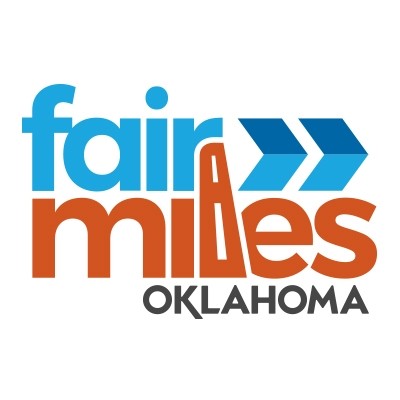

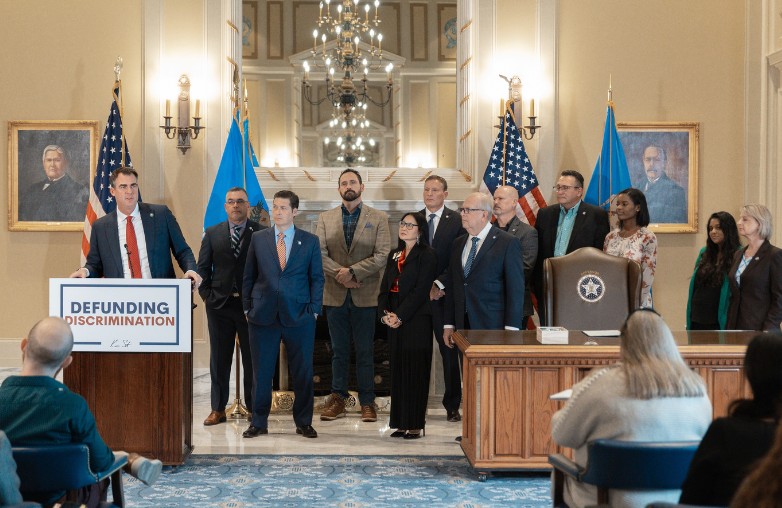
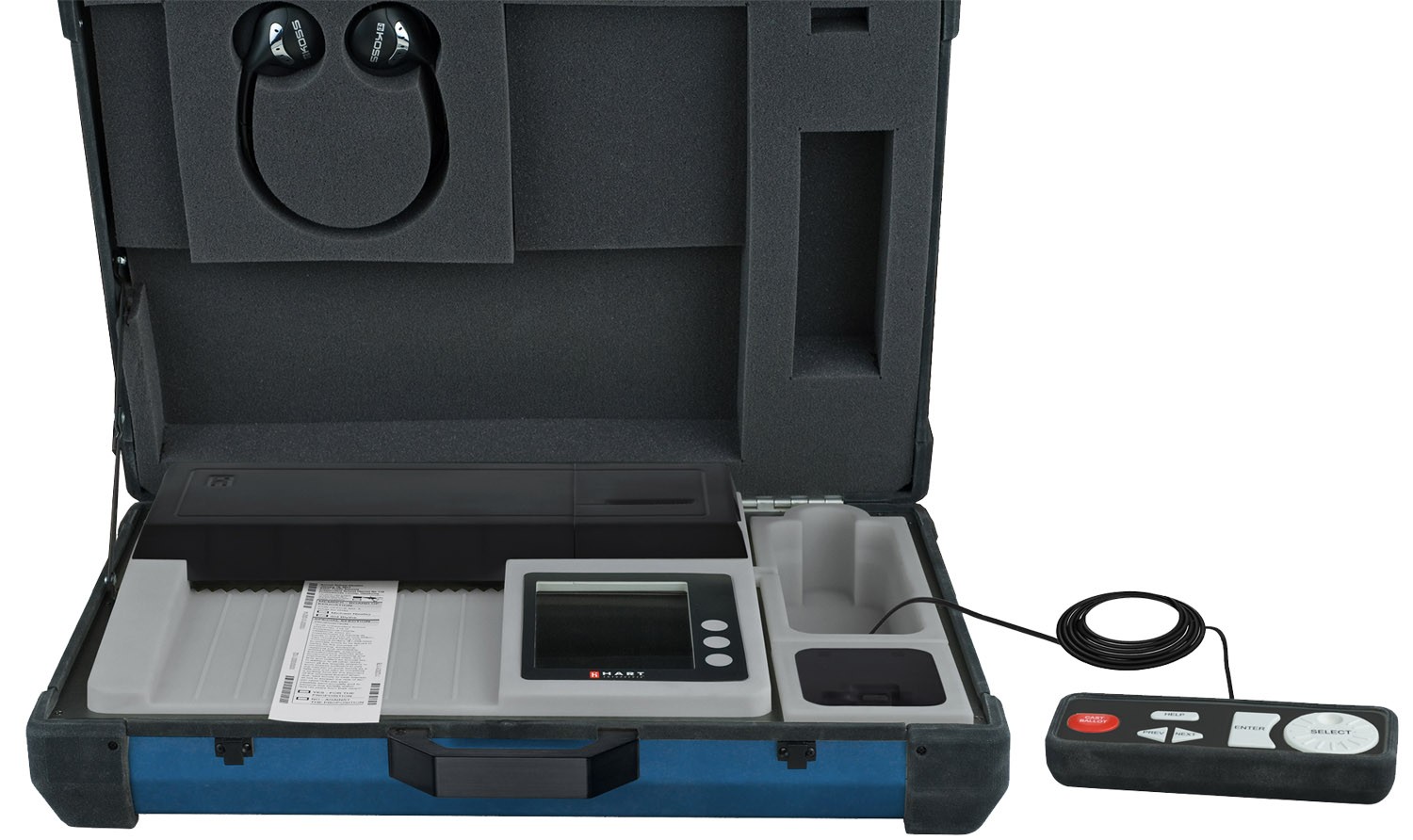
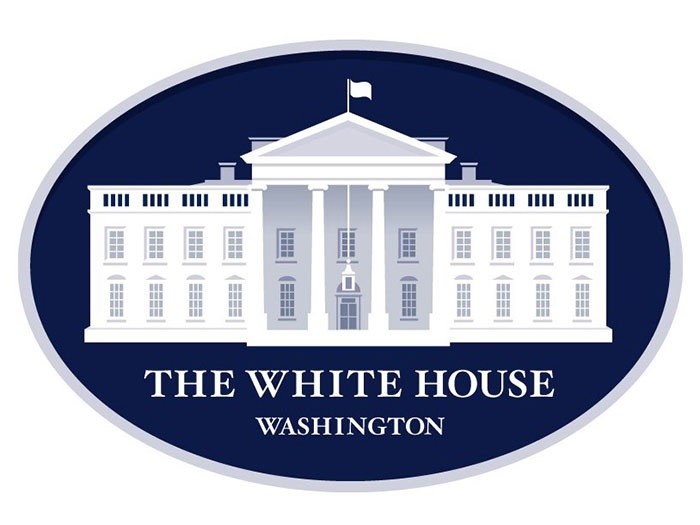
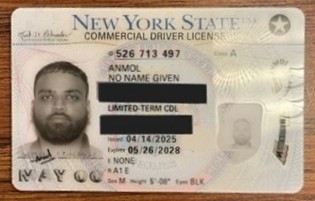




Latest Commentary
Thursday 30th of October 2025
Thursday 30th of October 2025
Thursday 30th of October 2025
Thursday 30th of October 2025
Thursday 30th of October 2025
Thursday 30th of October 2025
Thursday 30th of October 2025
Thursday 30th of October 2025
Thursday 30th of October 2025